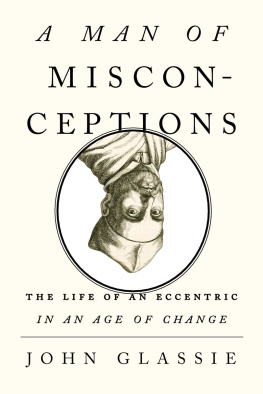Jean-Marie Blas De Robles
Where Tigers Are at Home
For Laurence
Virgile, Flix and Hippolyte
In memory of Philippe Hdan
No one can walk beneath palm trees with impunity,
and ideas are sure to change in a land where
elephants and tigers are at home.
GOETHE, Elective Affinities
PROLOGUE. ALCNTARA: Whipping-post Square
Mans swelling his pointed dick! Squaaawk! Mans swelling his pointed dick! Heideggers harsh, nasal, drunken-sounding voice echoed around the room.
Elazard von Wogau looked up from his reading in sudden exasperation; half swivelling around in his chair, he grabbed the first book his hand lit on and threw it as hard as he could at the bird. At the other end of the room the parrot, with a vigorous, multicolored ruffling of feathers, rose from its perch just enough to avoid the missile. Father Reillys Studia Kircheriana landed with a crash on the table beyond it, overturning the half-full bottle of cachaa. It shattered on the spot, soaking the book that had fallen apart.
Oh, shit! Elazard groaned.
For a brief moment he wondered whether to get up and try to save the book from further damage but then, catching the Sartrian look of the large macaw, which was pretending to be searching for something in its plumage, its head thrown back in an absurd attitude, its eye crazed, he decided to return to Caspar Schotts manuscript.
It was pretty remarkable, if you thought about it, that such a find was still possible: a completely unpublished manuscript that had come to light in the course of an inventory at the National Library in Palermo. The librarian had not thought the contents worthy of anything more then a brief article in the librarys quarterly bulletin together with a note to the director of the local Goethe Institute. It had taken an exceptional concatenation of circumstances for a photocopy of this handwritten manuscript the biography, written in French by an obscure German Jesuit, of another, equally forgotten Jesuit to reach Brazil and Elazards desk. In a sudden access of zeal, the director of the Goethe Institute had taken it upon himself to communicate the discovery to Werner Kntzel, the Berliner who for several years had been attempting to demonstrate how the binary language of computers was rooted in the scholasticism of Ramon Llull and its later variants, notably that of Athanasius Kircher. Always inclined to get carried away, Kntzel had immediately proposed it to the Thomas Sessler publishing house. Balking at the cost of translation, the publisher agreed in principle to a subscription edition and, on Kntzels advice, had commissioned Elazard to establish the text and provide a commentary.
You old bugger, Werner, Elazard thought with a smile, youve really no idea
He hadnt seen him since the distant days, already disappearing in the mists of time, of their meeting in Heidelberg, but he well remembered his weasel face and the nervous twitch causing the obscene quiver of a little muscle in his cheek. It suggested repressed tension, ready, it seemed, to explode at any minute, with the result that it sometimes made Elazard forget what he was saying, an effect perhaps more or less consciously intended by Kntzel. They had corresponded from time to time, although in fairly formal tones on his part, and Werner had never received more than a postcard, occasionally two, in response to the long letters in which he went into detail about his life and his successes. No, really, he didnt realize to what extent his own life had changed, nor what resources he had had to find to return to his old love. No doubt he knew Kirchers works better than anyone fifteen years of close acquaintance with a famous unknown are generally sufficient to procure one that useless privilege but Werner had no idea how far behind he had left his youthful ambitions. Elazard had long since consigned the thesis he had been working on in Heidelberg to oblivion, even though he continued to evoke its shade as the sole motivation for an obsession that kept surprising him a little. He had to admit: he collected anything closely or distantly connected with the life of that grotesque Jesuit with the same obsessiveness as some people collect bottles of whiskey or cigarette packets long after theyve stopped drinking or smoking. First editions, engravings, studies or articles, scattered quotations, everything was grist to his mill to fill the void left by his long-ago abandonment of university life. It was his way of remaining faithful, of satisfying, even if at the same time mocking, an appetite for knowledge of which, long ago, he had not shown himself worthy.
Soledade! he shouted without turning around.
It wasnt long before the young mulattos strange, beaming clowns face appeared. Yes, Senhor? she said in her velvety voice and with the intonation of someone wondering what could be wanted of her so abruptly.
Could you make me a caipirinha, please?
Pode preparar me uma caipirinha, por favor? Soledade repeated, imitating his accent and errors of syntax.
Elazard repeated his request by raising his eyebrows, but she just wagged her finger at him, as if to say, Youre incorrigible!
Yes, Senhor, she said before she went, not without making a face from which the tip of a pink tongue protruded.
A mixture of African and Indian, a cabocla as they said here, Soledade had been born in a village of the Serto. She was only eighteen but from adolescence she had had to move to the town to help feed her overnumerous brothers and sisters. For five years the interior regions everywhere had suffered from drought; the peasants were reduced to eating cactus and snakes, but they could not bring themselves to abandon their patch of land and preferred to send their children to the large towns on the coast where they could at least beg. Soledade had been luckier than most: with the help of one of her fathers cousins she had found work as a servant with a Brazilian family. Shamelessly exploited and thrashed for the least failure to carry out her employers orders, she had been delighted to accept an offer of work from a Frenchman whose eye she had caught at a feijoada given by his colleagues from the office. Denis Raffenel had been more attracted by her smile, her silky black skin and her beautiful young girls body than by her domestic skills; but he had treated her kindly, not to say respected her, so that she was perfectly content with the double wages he paid and the minimum work she was asked to do to earn them. Three months ago Elazards divorce had happened to coincide with the departure of this heaven-sent Frenchman and he had asked her to come and work for him, partly to please Raffenel but mostly because he was alone. Since she knew him from having seen him several times when he visited Raffenel and since he was French as well she would have died rather than go back to work for the Brazilians Soledade had accepted immediately, though she did demand the same wages, a pittance to be honest, and a color television. Elazard had agreed and one fine day she had moved in.
Soledade did the washing, the shopping and the cooking, cleaned the house when it suited her, which was rarely, and spent most of her time watching the insipid soaps on TV Globo, the national channel. As for the special services she had provided for her previous employer, Elazard had never requested them. He had never even entered the little room she had chosen for herself, out of indifference rather than thoughtfulness, for which Soledade seemed grateful.
He watched her as she came back, once more enjoying her casual gait, her very African way of sliding over the ground with the irritating slap of her bare feet. She placed the glass on his desk, made a face at him again and left.
Taking a sip of his drink Soledade got the perfect balance between


![Hiromi Kavakami - Strange Weather in Tokyo [= The Briefcase]](/uploads/posts/book/836028/thumbs/hiromi-kavakami-strange-weather-in-tokyo-the.jpg)







